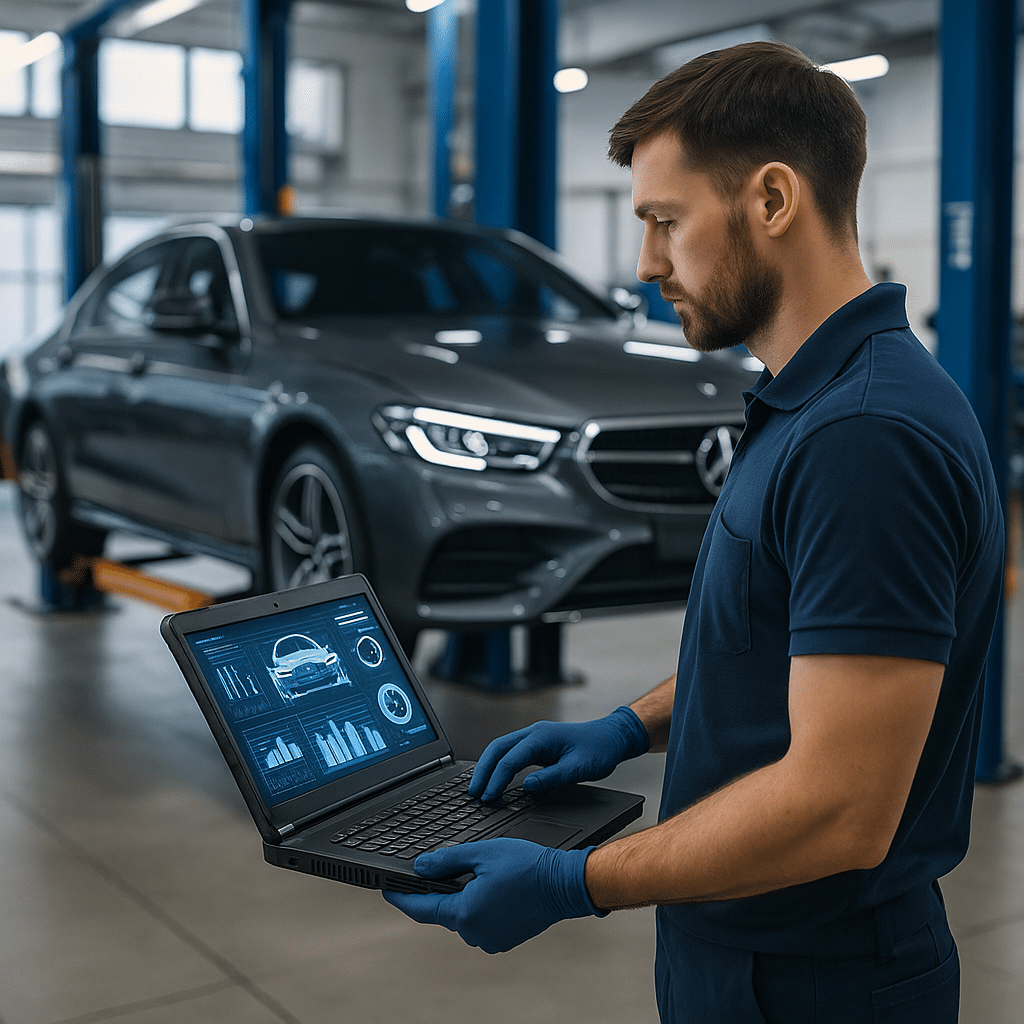European vehicles have always represented the peak of engineering sophistication. From BMW’s precision handling to Audi’s digital systems and Mercedes-Benz’s driver-assist features, these cars blend performance and technology in a way few others can. Yet as automotive technology evolves, so does the complexity of maintaining these vehicles. The rise of onboard diagnostics, smart sensors, and advanced software has made European car care more reliant on technology than ever before.
The Digital Evolution of Car Maintenance
A decade ago, most vehicle maintenance was mechanical. Today, it is increasingly digital. Modern European vehicles feature dozens of interconnected control units that manage everything from engine timing to adaptive suspension. Even a minor issue now requires sophisticated diagnostic equipment capable of reading error codes from specialized systems.
For example, BMW’s iDrive system communicates with the engine control module, brake sensors, and driver assistance features simultaneously. When one component fails, it can trigger warnings across several systems. Only a trained BMW mechanic with manufacturer-level diagnostic tools can properly interpret and resolve these codes.
This reliance on data-driven diagnostics has made the mechanic’s role more technical. Instead of simply replacing worn parts, professionals now act as engineers, software interpreters, and system integrators — all in one.
Software Updates and Smart Repairs
Just as smartphones need periodic updates, many European vehicles now receive over-the-air software updates that improve performance or fix bugs. These updates can modify transmission behavior, adjust suspension dynamics, or even extend electric vehicle range.
However, these advancements come with new maintenance challenges. Updating vehicle software incorrectly — or neglecting it altogether — can cause compatibility issues between modules. Technicians trained in the latest digital systems ensure that these updates are applied correctly without compromising performance.
In workshops specializing in European vehicles, technology is not just a diagnostic tool but part of the service itself. Skilled professionals use digital calibration equipment, adaptive alignment tools, and performance monitoring software to maintain the manufacturer’s original precision. For car owners, choosing an experienced European car mechanic ensures their vehicle’s systems continue to perform in sync with factory standards.
Predictive Maintenance and AI Integration
One of the most exciting developments in modern automotive care is predictive maintenance. Many late-model European cars now use artificial intelligence to monitor wear patterns and predict when components need attention. Sensors measure vibration, fluid viscosity, and temperature fluctuations, feeding data into cloud-based systems that alert both the driver and the service center when maintenance is due.
This technology minimizes unexpected breakdowns and reduces unnecessary repairs. Instead of following a fixed mileage schedule, maintenance becomes adaptive — personalized to the car’s real-world usage. BMW, Mercedes-Benz, and Volvo are already using this data-driven approach to improve reliability and efficiency.
For workshops, this means the future of European car care will involve more collaboration with data networks and manufacturers. Technicians will analyze cloud data, integrate it with diagnostic tools, and perform targeted maintenance based on predictive alerts.
The Human Element Behind the Machines
While technology has made vehicle systems smarter, it has also made expert technicians indispensable. Scanning software can identify issues, but understanding why those issues occur still requires hands-on experience.
For instance, a code may indicate a fuel mixture imbalance, but the root cause could be anything from a sensor malfunction to a subtle airflow disruption. An expert BMW or Audi technician combines technical training with analytical reasoning to find the exact solution.
The blend of human expertise and digital precision defines the future of automotive care. European car maintenance is no longer about replacing parts — it’s about understanding systems.
Why Choosing Specialized Care Matters
Not all workshops are equipped for this technological evolution. European vehicles use proprietary systems that require advanced scanners and manufacturer-specific software to service correctly. Independent shops that invest in this technology bridge the gap between dealership-level diagnostics and personalized service.
A specialized BMW mechanic understands how to work within the parameters set by the manufacturer, using genuine parts and compatible software to preserve the car’s integrity. Likewise, a trusted European car mechanic can maintain multi-brand expertise — from Volkswagen and Audi to Mercedes-Benz — ensuring each vehicle performs as its engineers intended.
The Road Ahead
Technology continues to redefine mobility. As vehicles become smarter, maintenance becomes more strategic and interconnected. For European car owners, that means choosing technicians who not only know how to turn a wrench but also how to interpret data, diagnose software conflicts, and maintain system harmony.
The relationship between technology and automotive care is no longer optional — it’s fundamental. The future of European car care will depend on shops that embrace innovation as deeply as the automakers themselves.
